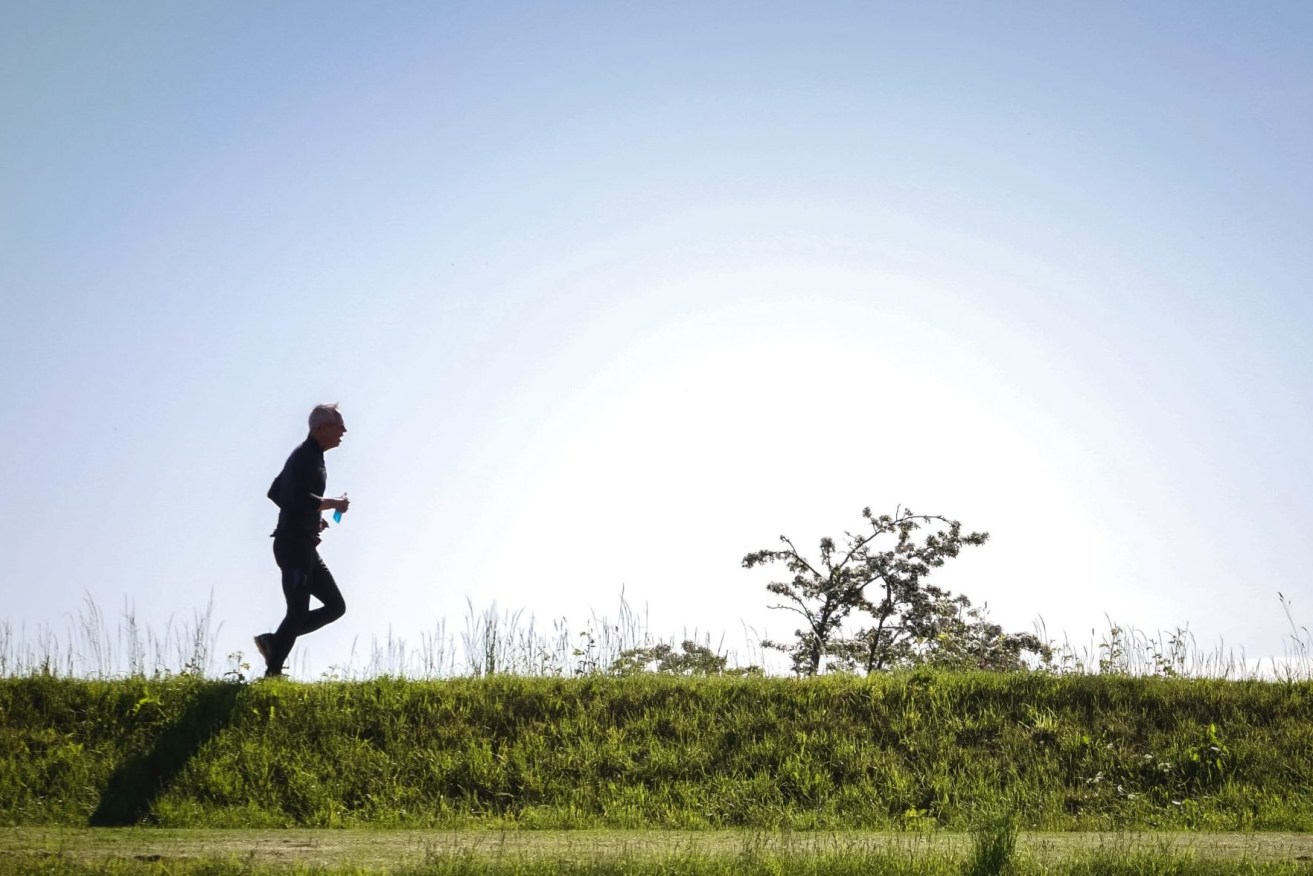The day I died, quietly and alone, by the side of a busy Brisbane road
Each day this month, we will publish Tales of 2020, the stories of ordinary Queenslanders enduring an extraordinary year. Today, former newspaper editor David Fagan tells how the isolation of a pandemic completely changed his life – and his death.

British researches have found evidence that regular, daily exercise can help stave off dementia. (Pic: Unsplash, Marcel Adrian)
Stay home, they said. Don’t meet in offices. Don’t meet in coffee shops. Use the phone. Use Skype. Use FaceTime. Use Zoom. Get used to a world of conversations built from need, not from a need to be noticed.
Perfect, I thought after waiting decades to confidently air my natural introversion. No more feigned extroversion, no more camouflaging what comes naturally (maybe shyness, maybe arrogance, maybe just nothing to say).
Somewhere between Summer becoming Autumn and Corona becoming COVID, the world shifted to a pace I preferred. Splendour in isolation.
It started like every significant event of my life (including most weekends) with a list of what to do. All this time. All mine. A garage to clean. Years of old files to organise or shred, a few kilos to lose. New riffs to learn on the guitar.
And all in my own time. No distractions or meetings over coffee, lunch or (worse) PowerPoint. Just me and those closest to me.
It’s not that I don’t like people. It’s just that…..I don’t love all of them, all of the time.
Then the phone calls and texts started. Just checking in that you’re okay, they asked. Sometimes we hadn’t spoken for months. I’m fine. I’m loving this, I’d reply. I think I’m made for these times. I’m getting through my work, loving being at home, getting lots of exercise and keeping well.
But thanks for asking (I have a garage to clean). But gee, it’s good to catch up.
As Lent became Easter, I was the one doing the asking.
“Hey, how are you finding ISO?” I’d ask before waxing lyrically and at length how I was using the time, loving the freedom. Loving not having to pretend I was an extrovert to a world that didn’t put much store on the inner world we introverts proudly claimed. Tender in isolation.
Then I started to Face Time. And Zoom. And Skype. Not for work but for beers. I found myself in WhatsApp groups discussing red wine, Zoom groups comparing the best rugby league tries of all time and with my muso mates on Skype trying to figure how we could synchronise our instruments for a jam session.
I stopped short of FaceTime Pilates because there were plenty of other and solitary ways to exercise – walking, running, boxing, stretching. The quiet hours quietly disappeared.
Work colleagues, once they had ditched exotic backdrops, found how to do PowerPoint on Teams, how to work on live documents, how to perfectly replicate the office from the corner of a spare bedroom. Without the nuances of behaviour that might tell you who was having an off day, who really didn’t want to be there and who was physically but not mentally there.
But I kept control of my own surrounds. The tethers to a desk were more like ribbons, easily broken. The needless conversations could conveniently be casualties of poor broadband. I could practice a riff, prepare dinner, duck out for a walk or reclean the garage at will. And still get my work done.
And talk about fit. The world might have been waiting for COVID, but I was ready. Fitter and healthier than I’d been for 30 years, I boasted to a former colleague while lacing on my shoes to go for an afternoon run. Slender in isolation.
Then I died. Alone.
It happened on the side of a road, just two hills from home. Don’t remember a thing except running out the front gate then waking up in a hospital with leads attached, a cut to my head and the news that I’d suffered a heart attack. Life ended (temporarily) in isolation.
But you’re never really alone. I was saved by a collection of passers-by. Some diverted traffic. Some pumped life into my heart and lungs with their bare hands until paramedics arrived with the paddles that powered me back.
Then the phone calls and texts started. Just checking you’re okay, they asked (this time with a tone of anxiety). So did the flowers, then the home cooked meals to tide over a family whose certainty had been swept from under them.
Next, the casual visitors started to drop by. Some, I hadn’t seen for months. We all agreed we were glad to be catching up because the outcome could easily have been different. The decades we’d invested in each other could have been exhausted just like that.
Rendered in isolation.
People. You’ve got to love them. They always rise to the occasion. And isolation? It’s overrated. Sixty-five beats a minute reminds me why. Anyone for coffee?
David Fagan was editor-in-chief of Queensland’s major newspaper, The Courier-Mail, for a decade and was News Corp’s editorial director in Queensland. He is author of Wake Up – The nine hashtags of digital disruption
This article was first published in Stories from the Heart, an e-book edited by Dr Johanna Skinner and editor Jane Connolly, and is republished with their permission.








